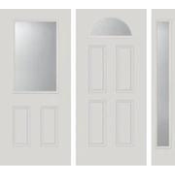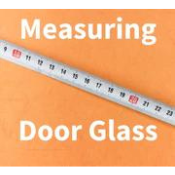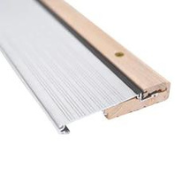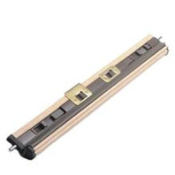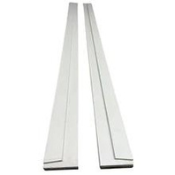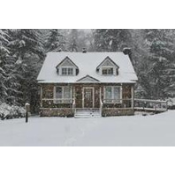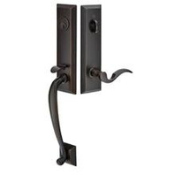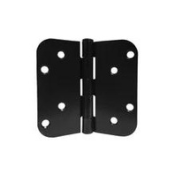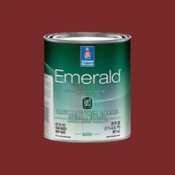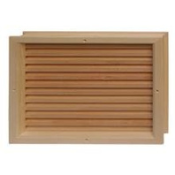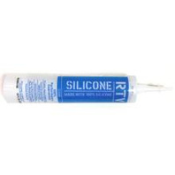
Choosing the right exterior sliding glass doors for your home is a crucial decision that impacts not only the aesthetics of your living space but also its functionality and energy efficiency. This ultimate guide will provide you with all the essential information you need to make an informed choice, from understanding the benefits and selecting the right materials to the installation process and maintenance tips.
Key Takeaways
- Enhanced natural light and views are some of the primary benefits of exterior sliding glass doors.
- Selecting the right glass and frame material type is crucial for balancing security and aesthetics.
- Proper installation is key to ensuring the longevity and functionality of your sliding glass doors.
- Regular maintenance and cleaning are essential to keep your sliding glass doors in optimal condition.
- Energy-efficient sliding glass doors can help reduce energy bills while enhancing your home's comfort.
Benefits of sliding glass doors for exterior use
Exterior sliding glass doors offer many benefits that can enhance your home's functionality and aesthetics. These doors are designed to provide an unobstructed view of the outdoors, allowing ample natural light to filter in. This not only brightens up your living space but also creates a stronger connection to the outdoors.
- Enhanced Natural Light and Views
Sliding doors are nearly indispensable for easy passage and open views. The concept is simple: sliding doors have one or more door panels that open by either gliding on a track or hanging from rollers mounted above. Eliminating the door swing has the benefit of preserving usable space around the door, allowing for the placement of furniture in front of the stationary panel, as well as maximizing the opportunity for panoramic views and a stronger connection to the outdoors.
- Space-Saving Design

One of the standout features of sliding doors is their space-saving design. Unlike traditional doors that require a swing space, sliding doors glide along a track, making them ideal for areas where space is at a premium. This design allows for more flexible furniture arrangements and can make a room feel more open and less cluttered.
- Energy Efficiency
Modern sliding glass door designs use a glass pack and insulated frames to offer better energy efficiency than traditional doors. These doors are often equipped with double or triple-pane glass, which helps to keep your home warm in the winter and cool in the summer. Additionally, some sliding doors come with built-in blinds between the glass layers, offering an extra layer of insulation and privacy control.
Choosing the right glass and frames for security and aesthetics
- Types of Glass: Tempered, Laminated, and More
When selecting glass for your exterior sliding doors, it's essential to consider both security and aesthetics. Tempered glass is a popular choice due to its strength and safety features. If broken, it shatters into small, blunt pieces, reducing the risk of injury. Laminated glass, on the other hand, consists of two or more layers of glass with an interlayer that holds the layers together if shattered, providing an added layer of security. Other options include Low-E glass, which improves energy efficiency by reflecting heat while allowing light to pass through.
- Frame Materials: Wood, Vinyl, Aluminum, and Fiberglass

The material of the frame plays a crucial role in the door's durability, maintenance, and overall look. Wood frames offer a classic and warm aesthetic but require regular maintenance to prevent rot and fading. Vinyl frames are low-maintenance and provide good insulation, making them a cost-effective choice. Aluminum frames are strong and lightweight but may not offer the same level of insulation as other materials. Fiberglass frames combine the best of both worlds, offering durability, low maintenance, and excellent insulation properties.
- Balancing Security and Aesthetics
Balancing security and aesthetics is vital in optimizing the functionality and overall aesthetics of your sliding glass doors. Multi-point locking systems can enhance security without compromising on style. Additionally, consider the layout of the outdoor space and the direction of the doors to ensure they complement the overall design of your home. When determining which door best suits your needs, consider aesthetics, function, and price. This holistic approach will help you choose a door that not only looks great but also meets your security requirements.
Installation process for sliding glass doors
Pre-Installation Preparation
Before you begin, ensure you have all the necessary tools and materials. This includes the sliding door kit, a level, shims, screws, a drill, and a measuring tape. It's crucial to measure the door opening accurately to ensure a proper fit. Clear the area of any debris and make sure the floor is level. If you're replacing an old door, remove it carefully to avoid damaging the surrounding structure.
Step-by-Step Installation Guide
- Install the side jambs around the door and secure them in place by drilling screws into the wall studs. Use shims between the jamb and wall to plumb and square the door frame.
- Place the sliding door track at the bottom of the opening and secure it with screws. Ensure the track is level to prevent the door from wobbling.
- Lift the sliding door panels and set them onto the track. Make sure they slide smoothly before securing them in place.
- Attach the top track or header and secure it with screws. Double-check that the door panels are aligned and operate correctly.
- Install any additional hardware, such as handles and locks, following the manufacturer's instructions.
Common Installation Mistakes to Avoid
- Skipping the leveling process: An uneven track can cause the door to malfunction.
- Not using shims: Shims are essential for ensuring the door frame is plumb and square.
- Ignoring manufacturer instructions: Always follow the specific guidelines provided with your sliding door kit to avoid issues.
- Rushing the installation: Take your time to ensure each step is completed correctly to avoid future problems.
Maintenance and cleaning tips for sliding glass doors
- Routine Cleaning and Care
To keep your sliding glass doors in top condition, regular cleaning is essential. Clean both the interior and exterior surfaces of the door regularly to remove dirt, dust, and debris. Use a mild glass cleaner or a mixture of vinegar and water for the glass surfaces. For the frames, a simple wipe-down with a mild soapy solution is usually enough to keep doors looking good. Don’t forget to check tracks for dirt and debris periodically, as well as ensuring seals are kept clean.
- Handling Common Issues
Over time, you might encounter some common issues with your sliding glass doors. One frequent problem is dirt and debris accumulating in the tracks, which can make the door difficult to open and close. Use a soft brush or cloth to remove debris and dirt from crevices. Cleaning the hardware like handles and hinges is also crucial; a mild soap solution can be used for this purpose. If the door becomes difficult to slide, you may need to adjust the rollers or lubricate the tracks.
- Seasonal Maintenance Checklist
Performing seasonal maintenance can help extend the life of your sliding glass doors. Here’s a simple checklist to follow:
- Spring: Inspect the weatherstripping and replace if necessary. Clean the glass and frames thoroughly.
- Summer: Check for any signs of wear and tear on the door’s hardware. Ensure the door is operating smoothly.
- Fall: Remove any leaves or debris from the tracks. Inspect the seals and replace them if they are worn out.
- Winter: Lubricate the tracks to ensure smooth operation during colder months. Check for drafts and seal any gaps.
By following these maintenance and cleaning tips, you can ensure that your sliding glass doors remain functional and aesthetically pleasing for years to come.
Maintaining and cleaning your sliding glass doors is essential for their longevity and smooth operation. Regularly clean the tracks and glass, and ensure the rollers are free of debris. For more detailed tips and expert advice, visit our website and explore our comprehensive guides.
Conclusion
Choosing the perfect exterior sliding glass doors for your home involves careful consideration of various factors, from the benefits they offer to the materials and design options available. By understanding the advantages of sliding glass doors, selecting the right glass and frames for both security and aesthetics, familiarizing yourself with the installation process, and adhering to proper maintenance and cleaning tips, you can make an informed decision that enhances your home's beauty and functionality. This guide equips you with all the necessary information to seamlessly integrate sliding glass doors into your living space, ensuring a harmonious blend of indoor and outdoor living.
Frequently Asked Questions
1. What are the main benefits of using sliding glass doors for exterior use?
Sliding glass doors enhance natural light and views, save space, and can be energy efficient.
2. What types of glass are best for sliding glass doors?
Tempered and laminated glass are popular choices due to their durability and safety features.
3. Which frame materials are available for sliding glass doors?
Common frame materials include wood, vinyl, aluminum, and fiberglass, each offering different benefits in terms of maintenance, durability, and aesthetics.
4. How can I ensure my sliding glass doors are secure?
Choose high-quality locking mechanisms, consider laminated glass for added security, and ensure proper installation to prevent forced entry.
5. What are some common mistakes to avoid during the installation of sliding glass doors?
Common mistakes include improper measurements, inadequate sealing, and not following the manufacturer’s installation guidelines.
6. How often should I perform maintenance on my sliding glass doors?
Routine cleaning and care should be performed regularly, with a more thorough seasonal maintenance checklist followed to ensure longevity and optimal performance.


